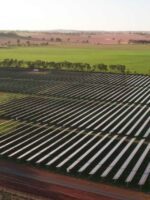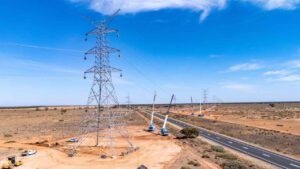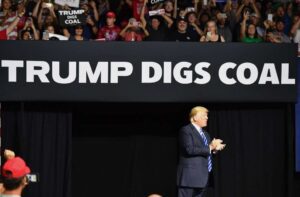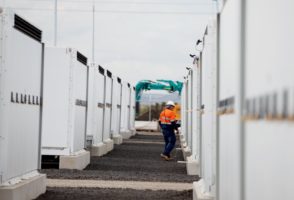A shareholder advocacy group has launched legal action against oil and gas company Santos in the Federal Court, alleging the company has made multiple breaches of corporate and consumer protection laws by making false claims that gas was a form of “clean energy”.
In legal proceedings launched on Thursday, the Australasian Centre for Corporate Responsibility (ACCR) will allege that Santos has breached the Corporations Act and the Australian Consumer Law, with the advocacy group claiming that Santos undertook “misleading or deceptive conduct” when the gas company claimed to be a producer of “clean energy” and that it was a producer of “clean fuels” in its 2020 annual report.
ACCR will also allege that Santos made misleading representations that it has a clear and credible pathway to achieve “net zero” greenhouse gas emissions by 2040, that the company’s plans were reliant on unproven technologies, and that Santos had plans to expand its natural gas operations.
The group said that the legal action was a ‘world first’ test of a fossil fuel company’s commitment to a zero emissions target, as well as the viability of relying on unproven technologies, including carbon capture and storage and the production of “blue” hydrogen, to meet those targets.
The ACCR’s director of climate and environment, Dan Gocher, said that the shareholder group had concluded that Santos’ track record on emissions and the growth of its investment in the gas sector was a threat to shareholder and that Santos’ claims needed to be challenged in court.
“Santos has perfected the art of greenwashing, and shareholders continue to be misled by Santos’ clean energy claims,” Gocher said.
“Santos’ ‘clean energy’ and ‘net zero’ claims pose a major risk to investors as it becomes increasingly more difficult to differentiate between companies taking genuine action versus those relying largely on offsets or unproven technologies.”
“Santos is planning to increase production by more than a third by 2025-26, which will come at the expense of emissions reductions in the critical decade to 2030,” Gocher added.
The group said the legal proceedings would test the environmental benefits of “blue” hydrogen production, pointing to research that shows that the majority of carbon capture and storage projects have ultimately failed and that the production of hydrogen using fossil fuels, even when emissions are captured, could be more environmentally damaging than just directly consuming fossil fuels.
“Whilst Santos claims it will produce zero emissions hydrogen, recent research has highlighted the carbon intensity of blue hydrogen production, demonstrating that CCS is not a cure-all for the emissions associated with hydrogen produced with fossil gas,” Gocher added.
“To date, the majority of CCS projects have failed. The technology is expensive and unreliable. As demonstrated by the Gorgon CCS project, even operating projects struggle to meet CO2 capture targets.”
ACCR will be represented by the Environmental Defenders Office, which said on Thursday that they believed there was an obligation on fossil fuel companies to be fully transparent about their businesses, including in relation to their responses to climate change.
“Our client is taking this action to ensure Santos and other gas companies are held to account for the claims they make about their product and its future in a highly carbon-constrained global economy,” EDO’s director of legal strategy, Elaine Johnson, said.
“Claims like those made by Santos need to be based on solid foundations. If companies are telling investors they have a credible pathway to net zero emissions, they need to have robust, sound plans to back them up.”
“Companies have a legal obligation to be upfront and honest with investors in their annual reports. This is particularly important to investors who are trying to assess which companies will survive and thrive in a rapidly changing global energy economy,” Johnson added.
The case will be the latest in a number of climate change related litigation launched in Australia, and the ACCR will also be represented in court by climate law expert Noel Hutley SC, Sebastian Hartford-Davis and Jerome Entwisle.
In July, the Federal Court ruled that the federal environment minister owes a duty of care to young people to protect them from the impacts of greenhouse gas emissions when exercising their power under federal environment laws. That decision is set to be appealed by the Morrison government, which will dispute that such a duty of care exists.
Earlier on Thursday, the NSW Land and Environment Court ruled that the NSW Environmental Protection Authority has a duty “to develop environmental quality objectives, guidelines and policies to ensure the protection of the environment in New South Wales from climate change”. The court so found that the NSW EPA has failed in that duty and ordered the authority to take action to meet its obligations.
In July last year, the advertising regulator ruled that it was misleading to call gas ‘cleaner and greener’ than other energy sources, following a complaint about billboard advertising run by Australian Gas Networks.






